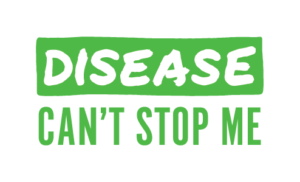When I was first diagnosed with multiple sclerosis it was devastating. For me it was a shock. I did not know what to do, and where to turn next. For others, being diagnosed is a relief. They finally have an answer to all of the issues they have been facing for the past weeks, month, and even years.
The one thing I know is that being diagnosed with a chronic illness is not easy for anyone. It takes a mental and physical toll on your body.
Follow these 10 tips and hopefully you can find a way to live a fulfilled life and not let your illness take away your perseverance.
1) Research, Research, Research
Get to know your illness; after all it is most likely not going away. When I was diagnosed I bought all of the highest rated Multiple Sclerosis books on Amazon. Knowledge is a key part in understanding what it means to be diagnosed with a chronic illness. Research online, research in books, research everywhere you can. The more you know, the better you will be at conversing with your doctor in the future. Plus, when your friends and family find out that you have an illness, it is beneficial to understand it.
2) Find Support
It does not matter where you find support, as long as you do not fight the battle alone. I found that friends and family became my biggest support structure. You can also find local support groups, online support groups like the Can’t Stop Me Community, and one on one support from your hospital. The most important thing is that you do not go through this alone. If you are having trouble finding support please contact me, free of charge. It is important to find a friend in the journey.
3) Don’t be afraid of looking for a second opinion
Sometimes it is very difficult to cope with being diagnosed with a chronic illness. There will be a point that you will have to accept that you have been diagnosed and start to live your life accordingly. The one thing I don’t want you to forget is that you can always look for more opinions. If you do not feel like you were given the proper testing to be diagnosed, looking for a second opinion never hurts. Just remember that the majority of doctors are looking out for your best interest by diagnosing you. Find a good doctor and stick with them. Having a trustworthy reliable doctor is a great step forward in handling your illness.
4) Share your emotions
I will be the first to admit that I shed some tears when I was diagnosed with multiple sclerosis. I will also be the first to admit that if I did not show my emotions, I would be a wreck. The second part of finding support is to share your feelings about your diagnosis. The only way to turn your life back around, and live with your chronic illness, is to let out your emotions. Cry, scream, and do whatever you need to make sure that you do not hold it in. I find that getting people to share their emotions is sometimes the hardest part of being diagnosed.
5) Start to create a sense of realistic optimism
What is realistic optimism? Knowing what the worst can be with your illness, and planning for the best. We don’t have to fool ourselves into thinking that it won’t be a hard journey. We just need to find hope that we will succeed in that journey. Start to believe in yourself. We don’t need to convince ourselves that everything is perfect. On the contrary, we need to understand that everything is not perfect and be optimistic that we will make it through the struggle.
6) Look for success stories
Next time you have a minute, turn on your local news. The majority of stories are about what is wrong with the world. The same thing happens with chronic illness. I remember the first time researching multiple sclerosis and finding hundreds of stories about the worst case scenarios. If you are researching your illness, look for people who have succeeded in fighting their illness. It is always easier to find hope if someone else has succeeded.
7) Fight to control what you can in your life
There are certain things in your life that you can control. Being diagnosed with a chronic illness is not one of them. Set goals in parts of your life that you can control. Read my article on goal setting with chronic illness.
8) Start a journal
No, you don’t have to be a teenage girl to keep a journal. A journal can be a great place to keep track of goals and write down both setback and achievements. The second part of your journal should be to record your symptoms. I always find it hard to remember when I had symptoms and how bad they were throughout the year. By tracking them somewhere, you will be better prepared to talk to your doctor next time you see them.
9) Don’t be afraid of alternative approaches
First of all, I want to clarify that I am not a doctor and you should not take my advice as medical advice. I just know from my experience that trying out other ways to control my chronic illness is a great compliment to the doctor’s treatment. Ever since I was diagnosed, I started to eat the Paleo Diet. I consider this diet to be a contributing factor to how well I feel. Don’t be afraid to research different natural ways to handle your illness. However, always consult your doctor and let them know what you are trying.
10) Never let your illness win
You may think that this is a silly tip, but I disagree. Too often I see people give up. Their struggle becomes too cumbersome, and they lose faith in living a “normal life”. Never lose faith, and never give up. There will be tough days, but having an illness will only make you a stronger person. Fall back on your support structure, set the smallest goals, and never let your illness win.
Do you have any other tips? I would love to hear them. Post them below!
Dave











Hi Dave, your post is a great way for someone newly diagnosed with a chronic illness to gain some control over a sense of powerlessness. I consider utilizing whole nutritional support as part of research and/or alternative approaches, and you’ve probably mentioned it elsewhere. In addition, it may be helpful for some to look at what environmental toxins may be contributing to the severity of the disease that can be eliminated. Thanks so much for sharing!
Take care, and thanks again for the great post!
Dannelle
It could take some time to get diagnosed. It took 10 years for me to get a dr to agree with me that I had Trigeminal Neuralgia. So be patient and remember no one will b we a better advocate for you than you!
Also, I recommend building a support team of drs, therapists, and other healthcare professionals. Make sure each is top notch and that one can cover for another in case you have an emergency.
For example, in an emergency, my primary dr has agreed to write a pain pill prescription in case my pain specialist is unavailable.